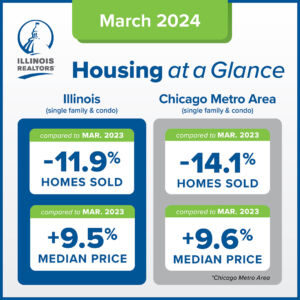Over the past month, all eyes have been on the U.S. Supreme Court (SCOTUS) and several landmark decisions that have been making national news on an almost daily basis. In fact, many who might normally remain blissfully unaware of the actions of the court have become interested in its workings and the impact these recent rulings may have on our country.
Ironically, of importance to the real estate world, is a case that SCOTUS declined. That is a case out of Missouri in which an architecture firm, Designworks Homes, Inc. sued Columbia House of Brokers Realty, Inc. after the real estate company mocked up and published floor plans along with their residential listings. The drawings in the case depicted a home in Columbia, Missouri that was designed, built and sold by architect Charles James and his firm in 1969. The home had a unique triangular forum that the designing architect testified to the lower court was his greatest architectural accomplishment.
When the owners of the home decided to sell in 2010, their listing agent, associated with Boone Group Ltd., measured the interior including the forum and mocked up a floor plan to include with his marketing materials. The architect’s firm discovered the use of the mock-up and in 2018, registered a copyright for the floor plan and filed a lawsuit against Boone Group, Ltd. over the use of the plan in the listing materials.
In 2021, the Eighth Circuit court determined that the floor plans were protected by copyright law. Columbia House of Brokers Realty, Inc., (defendant in the lower court case) asked SCOTUS to consider the case, arguing in their petition for certiorari that the floor plans were covered by a copyright law exception which allows users to make pictures, photos or other representations of protected architectural works. They further argued that the decision from the Eighth Circuit eliminated a long-standing real estate practice of using floor plans to sell homes, and potentially exposed thousands of brokerages to liability for doing so.
The National Association of REALTORS® (NAR) filed an amicus brief in support of Columbia House, making several arguments that may resonate with Illinois REALTORS®. NAR’s primary argument was that the ruling misrepresented federal law and had the potential to invalidate decades of legal precedent by allowing copyright infringement lawsuits to be filed against homeowners who make or display floor plans of their own homes.
They further supported their position with several key points:
- Floor plans play a key role in real estate, helping buyers evaluate whether to purchase a residence.
- Buyers’ ability to secure financing is often contingent upon an appraisal which often requires the use of a floor plan created for that purpose.
- Homeowners or their contractors often make floor plans to assist in remodeling and redecorating.
- Many jurisdictions require the submission of a floor plan before obtaining permits to renovate property.
NAR also pointed out that the Eighth Circuit’s decision placed countless consumers and brokerages at risk of costly, burdensome litigation for creating their own floor plan for any practical purpose. NAR’s brief was introduced to SCOTUS alongside 18 other groups representing consumers and professionals throughout the U.S. real estate industry. Read NAR’s news release on filing the brief.
SCOTUS declined to review the case, stating that the parties had not presented a compelling reason for review, and that the issue could potentially rise to the Court through the appellate courts.
Closer to home, the Seventh Circuit recently decided another copyright case involving floor plans. In Design Basics, LLC v. Signature Construction, Inc., (7th Cir. Apr.23, 2021) the Seventh Circuit addressed whether a home builder’s floor plans infringed on the plaintiff’s architectural copyrights and affirmed a lower court’s entry of summary judgment against the plaintiff, finding that only a virtually identical design would infringe the plaintiff’s “thin copyright” in its floor plans. Design Basics, LLC v. Signature Construction, Inc., Case No. 19-2716 (7th Cir. Apr. 23, 2021) (Sykes, J.)




 Create professional development programs that help REALTORS® strengthen their businesses.
Create professional development programs that help REALTORS® strengthen their businesses.
 Protect private property rights and promote the value of REALTORS®.
Protect private property rights and promote the value of REALTORS®.
 Advance ethics enforcement programs that increase REALTOR® professionalism.
Advance ethics enforcement programs that increase REALTOR® professionalism.
 Protect REALTORS® by providing legal guidance and education.
Protect REALTORS® by providing legal guidance and education. Stay current on industry issues with daily news from Illinois REALTORS®, network with other professionals, attend a seminar, and keep up with industry trends through events throughout the year.
Stay current on industry issues with daily news from Illinois REALTORS®, network with other professionals, attend a seminar, and keep up with industry trends through events throughout the year.







